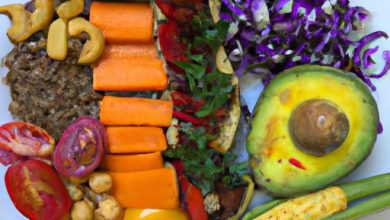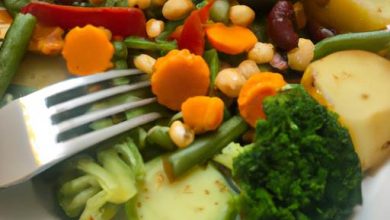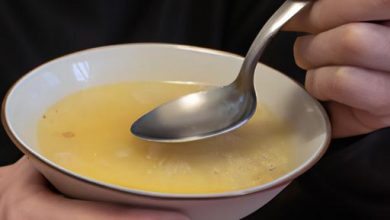Which Type of Food is Best for Weight Loss?
Losing weight is often a challenging journey that requires a combination of regular exercise, healthy eating habits, and a positive mindset. When it comes to weight loss, the type of food you consume plays a crucial role in determining your success. The right food choices can help you shed those extra pounds and maintain a healthy weight. But with so many diet plans and fads out there, it can be challenging to choose the right type of food that suits your needs. In this article, we’ll explore the different types of food that are best for weight loss.
Low-Carbohydrate Diets

Low-carbohydrate diets, or low-carb diets for short, are a popular choice for individuals looking to lose weight. These diets limit the intake of carbohydrates, a macronutrient found in foods such as bread, pasta, and rice. Low-carb diets typically recommend a higher intake of proteins and fats, which can help suppress hunger and reduce overall calorie intake.
One of the main benefits of a low-carb diet is its ability to promote weight loss. According to a study published in the Annals of Internal Medicine, individuals following a low-carb diet lost more weight than those following a low-fat diet. Low-carb diets can also help improve blood sugar levels, reduce the risk of heart disease, and increase energy levels.
However, there are also some drawbacks to consider when following a low-carb diet. For example, some individuals may experience fatigue, constipation, or bad breath. Additionally, a low-carb diet may not be suitable for athletes or individuals with certain medical conditions. Some examples of low-carb foods include meat, fish, eggs, vegetables, nuts, and seeds.
Low-Fat Diets
Low-fat diets are another popular choice for individuals looking to lose weight. These diets limit the intake of fats, a macronutrient found in foods such as cheese, butter, and oils. Low-fat diets typically recommend a higher intake of carbohydrates and proteins, which can help reduce overall calorie intake and promote weight loss.
One of the main benefits of a low-fat diet is its ability to reduce the risk of heart disease. According to the American Heart Association, a low-fat diet can help lower cholesterol levels and improve overall heart health. Additionally, low-fat diets can help improve blood sugar levels, reduce the risk of certain cancers, and increase energy levels.
However, there are also some drawbacks to consider when following a low-fat diet. For example, some individuals may experience hunger, mood swings, or difficulty sticking to the diet. Additionally, a low-fat diet may not be suitable for individuals with certain medical conditions. Some examples of low-fat foods include fruits, vegetables, lean meats, and whole grains.
High-Protein Diets
High-protein diets are another popular choice for individuals looking to lose weight. These diets recommend a higher intake of protein, a macronutrient found in foods such as meat, fish, and eggs. High-protein diets typically limit the intake of carbohydrates and fats, which can help suppress hunger and reduce overall calorie intake.
One of the main benefits of a high-protein diet is its ability to promote weight loss. According to a study published in the American Journal of Clinical Nutrition, individuals following a high-protein diet lost more weight and fat mass than those following a low-protein diet. High-protein diets can also help improve muscle mass, reduce the risk of heart disease, and increase satiety.
However, there are also some drawbacks to consider when following a high-protein diet. For example, some individuals may experience constipation, dehydration, or kidney problems. Additionally, a high-protein diet may not be suitable for individuals with certain medical conditions. Some examples of high-protein foods include chicken, turkey, fish, tofu, and legumes.
Plant-Based Diets
Plant-based diets are a type of diet that primarily consists of plant-based foods such as fruits, vegetables, whole grains, and legumes. These diets typically limit the intake of animal-based products such as meat, dairy, and eggs. Plant-based diets have gained popularity in recent years due to their potential health benefits and positive impact on the environment.
One of the main benefits of a plant-based diet is its ability to promote weight loss. According to a study published in the Journal of General Internal Medicine, individuals following a plant-based diet lost more weight than those following a non-vegetarian diet. Plant-based diets can also help improve overall health, reduce the risk of chronic diseases, and increase longevity.
However, there are also some drawbacks to consider when following a plant-based diet. For example, some individuals may experience nutrient deficiencies, such as vitamin B12 and iron. Additionally, a plant-based diet may not be suitable for athletes or individuals with certain medical conditions. Some examples of plant-based foods include fruits, vegetables, whole grains, legumes, and nuts.
Plant-Based Diets
Plant-based diets are becoming increasingly popular for weight loss and overall health. These diets focus on consuming foods that come from plants, such as fruits, vegetables, whole grains, legumes, and nuts. Plant-based diets can be either vegetarian or vegan, depending on the extent to which animal products are restricted.
One of the main benefits of a plant-based diet is its ability to promote weight loss. According to a study published in the Journal of the Academy of Nutrition and Dietetics, individuals following a plant-based diet lost more weight than those following a standard diet. Plant-based diets can also help reduce the risk of heart disease, lower cholesterol levels, and improve digestion.
However, there are also some drawbacks to consider when following a plant-based diet. For example, individuals may need to be more mindful of their protein intake to ensure they are meeting their daily requirements. Additionally, plant-based diets may not be suitable for individuals with certain medical conditions, such as iron-deficiency anemia. Some examples of plant-based foods include fruits, vegetables, beans, lentils, tofu, and whole grains.
Conclusion
When it comes to weight loss, choosing the right type of food is essential for success. Low-carb diets, low-fat diets, and plant-based diets are all viable options for individuals looking to shed those extra pounds. Each diet has its own benefits and drawbacks, so it’s essential to choose a diet that suits your individual needs and preferences.
To choose the best type of food for weight loss, consider your personal goals, lifestyle, and any medical conditions you may have. Additionally, it’s essential to consult with a healthcare professional before starting any new diet plan. By making informed choices and sticking to a healthy diet, you can achieve your weight loss goals and live a healthier life.
At Zahnweiss Info, we’re dedicated to providing the latest updates on health and wellness. By following a healthy diet and maintaining good oral hygiene, you can achieve optimal health and well-being. Choose the best type of food for weight loss and start your journey to a healthier you today!




